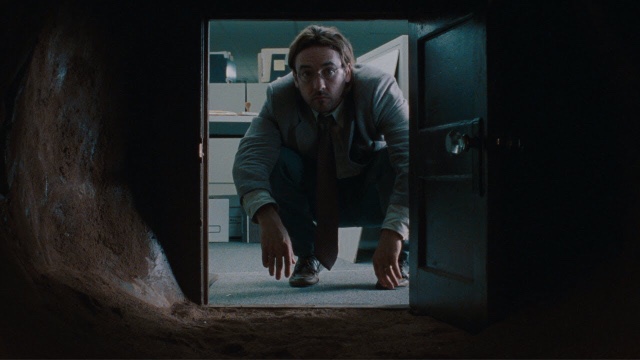it raises all sorts of philosophical-type questions

(A note before I get going: I finished yesterday 's entry before the film was over and even before Craig was kicked out of Malkovich after months of living inside him. I mentioned the piece of wood Craig uses but thought it just some random piece of wood. It is not. I noticed it was the edge of a frame when he held it up alongside that New Jersey Turnpike last night and I just confirmed what frame it was tonight as the earlier scene came again. The board is not some random piece of wood. It is the right side of the door frame outside the portal. It comes off the frame when Craig pulls away the board that has presumably been nailed in place over the whole door and frame to hide them. The first thing Craig does when he finds the portal is break it. I don't know if that means anything, but I find it interesting.) I'm reading Dan Hobart's metaphilm review of Being John Malkovich and it's the usual stuff--the film is about "living your life vicariously through











